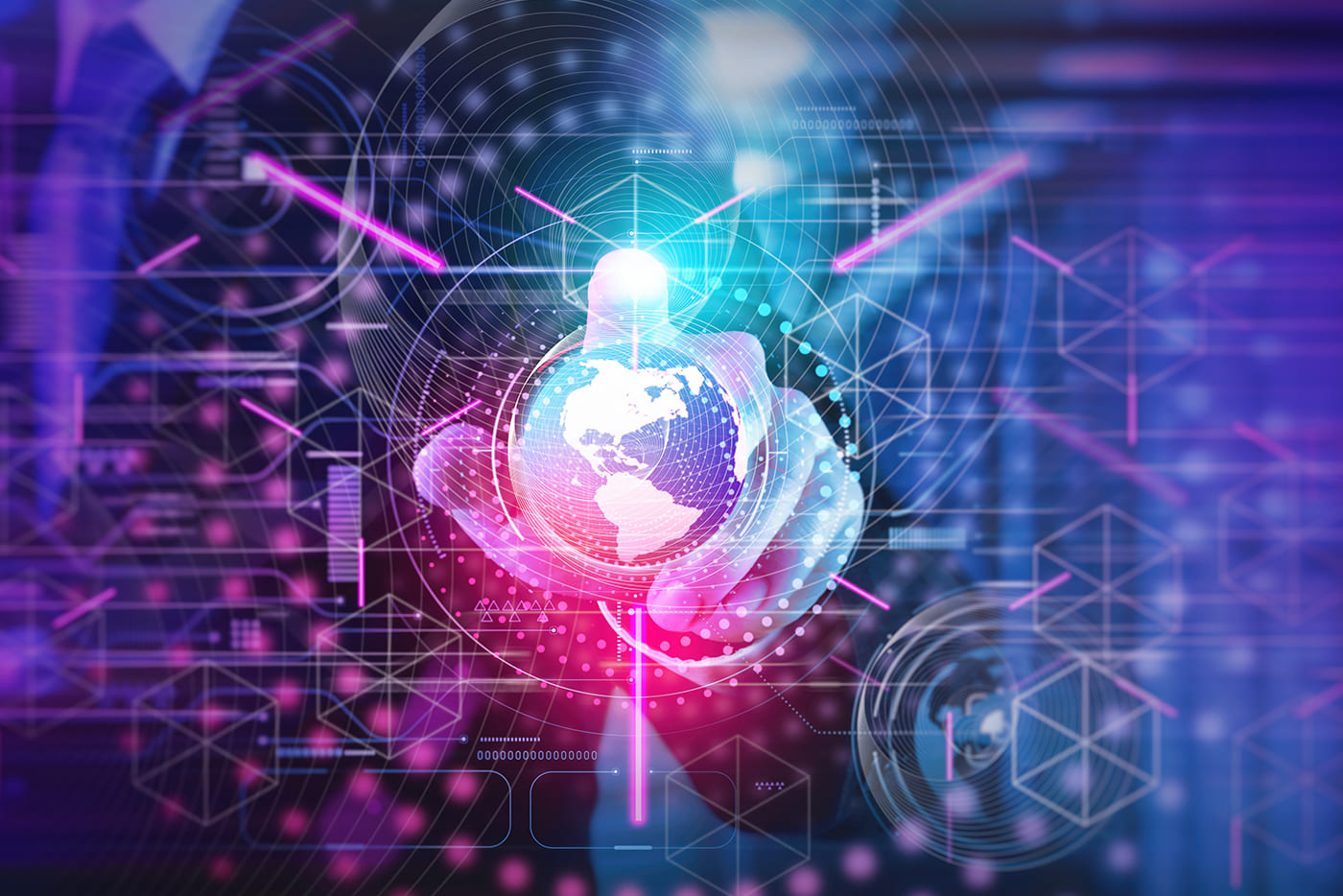
Web3 not only promises security but also the privileges of ownership, control and monetization of content. In short, it is a read-write-own web.
By Abdullah Qureshi
Ever since the co-founder of Ethereum, Gavin Wood, originated the thought of Web3 back in 2014, the tech community has been catalyzed into the discussion around it. How would it revolutionize the way we share information? How is it going to shift the course of the digital economy? How is it going to affect healthcare, business, media, energy, and pretty much every single sector? And most importantly, is it feasible?
The operating economy for Web3 would surely be cryptocurrency. The incidents of scams and detrimental speculation in the crypto market, during the past few years, had a negative impact on the public’s trust.
The debate around the latent benefits and possible drawbacks of Web3 has become customary among its proponents, experts, and critics alike. But we have witnessed a huge surge in the discussion and hope towards its advent during the last year, 2021.
Let’s discuss whether Web3 is going to be the future of the internet and the next big thing in the world of technology?
What is Web3?
First of all, I would like to clarify the term ‘Web3’ before we dig deep into the discussion of its future. In simple terms, Web3 is the same as our current version of the internet (Web 2.0), but it would be decentralized with the help of blockchain technology. Meaning that everyone’s data would be stored in a decentralized peer-to-peer network of computers rather than a couple of web servers, owned by giant tech companies. It is the new stage of the World Wide Web which emphasis more on empowerment and security.
Do not confuse the term ‘Web3’ with ‘Web 3.0’ which represents the vision of the semantic web by Tim Berners-Lee, the inventor of the World Wide Web. The semantic web or Web 3.0 refers to the advanced version of the present-day internet where machines, with the support of machine learning & artificial intelligence would interpret the given data like we humans do. The goal is to enhance the efficiency and intelligence of the internet so that users can discover, search, join and share information with hardly any effort. While the key objective of Web3 is to empower users and give them back the ownership of their data by shifting the entire web over to blockchain technology.
Even though Web3 can utterly change the web world, it faces many roadblocks and hurdles that need to be dealt with before we can have a truly decentralized and transparent World Wide Web.
The Necessity for Web3
To realize why Web3 is a dire necessity in today’s world, we need to understand the major downside of the existing version of the internet. The current stage of the internet is known as Web2, or social web, which came into existence in 2004. With its dawn, it brought up a constitutive change that allowed users to create & publish content via digital platforms. In short, it was a read-write web, contradictory to the first version (Web1) which was the read-only web.
Now the disturbing question is who owns all the user-generated data on the web? Do you believe that your social media accounts, business websites, in-game assets, etc. belong to you? If yes, then the answer is wrong.
The reality of the matter is that majority of your data is being owned and controlled by the behemoths in the tech industry i.e. Google, Microsoft, YouTube, Facebook, etc. And the entire process is being carried out based on mere trust. Nothing is 100% private and secure for users. The history’s most significant cyberattacks are evidence of Web2’s inadequate security. As a matter of fact, one of the largest cyber-attack that occurred in 2016 disrupted much of the internet service across Europe and the USA.
On the other hand, Web3 not only promises security but also the privileges of ownership, control, and monetization of your content. In short, it is a read-write-own web. Instead of consolidating all the data in one place, blockchain technology allows it to be stored in a distributed mechanism. Instead of trusting valuable data to tech corporations, users would have all the proprietorship of their content. Like Gavin Wood said, “Less trust, and more truth.”
Where is it headed?
The thought of relocating the entire internet over blockchain technology is not a mere discussion anymore. Many active technologies have proved the legitimacy of blockchain technology on a massive scale. While some of them are in the transition towards it to shape the future landscape for a fully fleshed Web3 ecosystem.
The prominent ones include for storage purposes, many companies are now preferring IPFS (InterPlanetary File System) over cloud computing platforms i.e. AWS, Microsoft Azure, IBM Cloud, Google Cloud, etc. Many Blockchain-Based Web Browsers are gaining popularity and acknowledgment among users. The new economic system based on cryptocurrency is gaining massive validation and popularity since its advent in 2009. The new hype in the collectibles, art, and gaming industry due to NFTs is not something that can simply be ignored.
Besides these, many other technologies are adapting to the decentralized and permissionless web where everyone owns a bit of the internet.
Many active technologies have proved the legitimacy of blockchain technology on a massive scale. While some of them are in the transition towards it to shape the future landscape for a fully fleshed Web3 ecosystem.
Hurdles in the way
Even though Web3 can utterly change the web world, it faces many roadblocks and hurdles that need to be dealt with before we can have a truly decentralized and transparent World Wide Web.
Some of the major obstacles in Web3’s path are like asking big corporations to leave their monopoly, centralized power, and billions of dollars to support a uniformly distributed web is no easy task. And expecting small companies to leave what little revenue they are generating is even harder.
Developing decentralized web browsers is no easy feat. It takes a lot of time and resources to build web browsers that can compete with giants like Google, Mozilla Firefox, Microsoft Edge, etc. The UI/UX of Web3 is comparatively very meager and needs to be upgraded.
The operating economy for Web3 would surely be cryptocurrency. The incidents of scams and detrimental speculation in the crypto market, during the past few years, had a negative impact on the public’s trust. And public’s trust would be a major factor in the adoption of Web3. If by any chance, the crypto market got crashed somehow, it would jeopardize the whole Web3.
As there is no single entity governing the internet, the concept of regulations, legislation, and censorship would also not be present. Who would be accountable for scams, harassment, exploitation, and abuse on the internet?
The final thought
Undoubtedly, there are many issues and challenges around Web3. And the Future of Web3 depends on how we tackle these challenges. But speculating it to be just hype, by some critics, is totally unjustified. Many critics had predicted that the internet will collapse catastrophically in 1996 and would not be used ever.
As of now, many blockchain technologies i.e. Ethereum, Bitcoin, NFTs, Airbnb, etc. have already provided validation for the feasibility of blockchain technology. After all, every fundamental revolution meets its own set of issues that get resolved along with its progression.
Web3 environment offers the basis for transparency, content proprietorship, open access, and unreachable security. And because the current version of the web does not ensure full data privacy and content ownership, people would most likely shift towards Web3.
Undoubtedly, there are many issues and challenges around Web3. And the Future of Web3 depends on how we tackle these challenges. But speculating it to be just hype, by some critics, is totally unjustified.
As for tech giants, we believe that they would surely accept the change if the majority of internet users choose to adopt Web3. Because it is a proven fact that organizations that don’t evolve with technology advancements & according to customer needs, they cannot survive and are left out of the competition. As Charles Darwin said, “the species that survives is not the most clever or the strongest; rather, it is the one that is most adaptable to change.”
Abdullah Qureshi is the founder of Esygma Inc, a startup helping Web3 businesses to grow and scale. Abdullah is currently working with several businesses in the Web 2 and Web 3 space, helping them grow through digital marketing and changing market behaviors in the light of the emerging blockchain economy.

The author is a double major in Computer Science and Physics from Kalamazoo College, Michigan.

